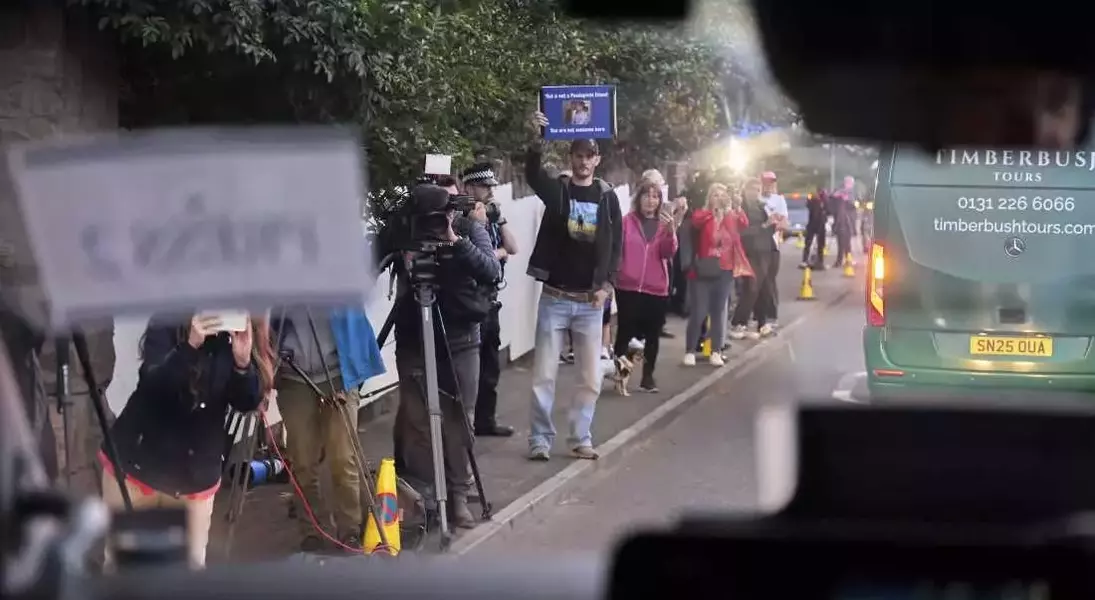
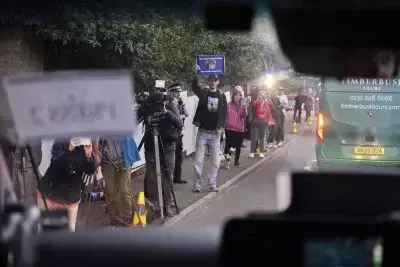
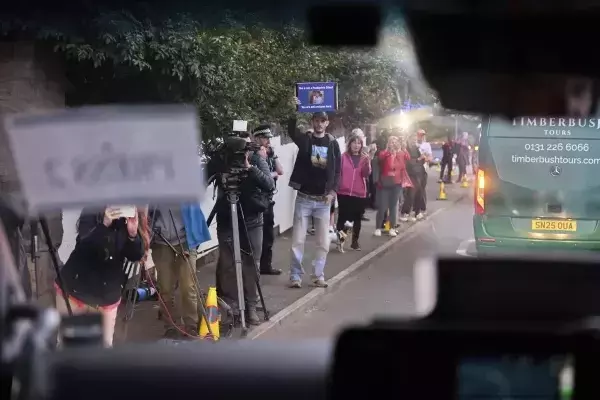
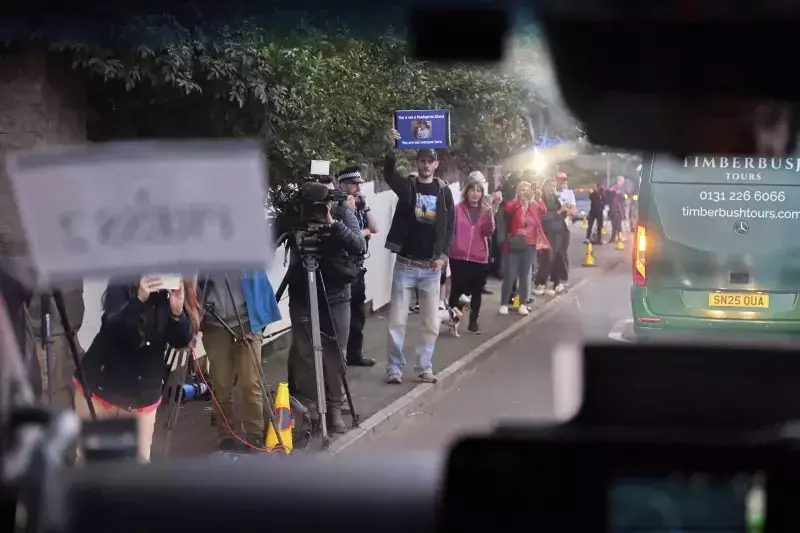
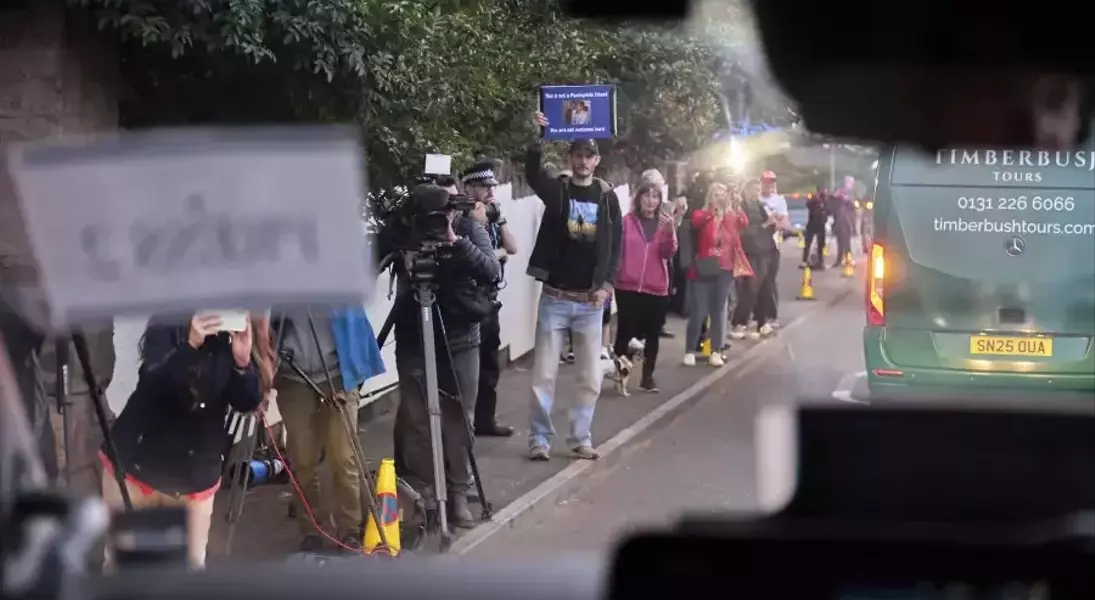
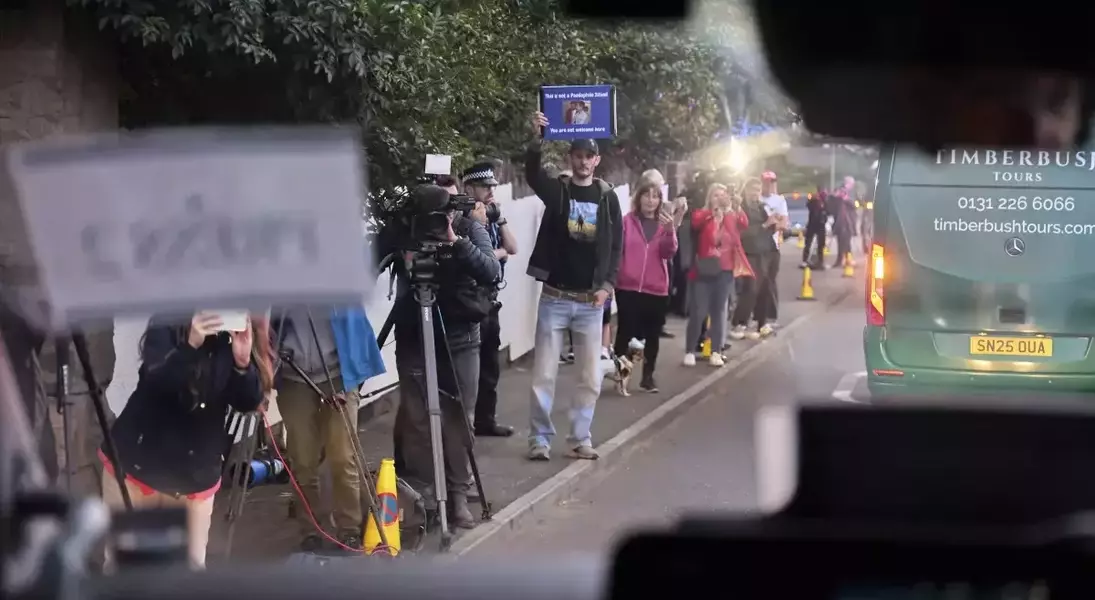
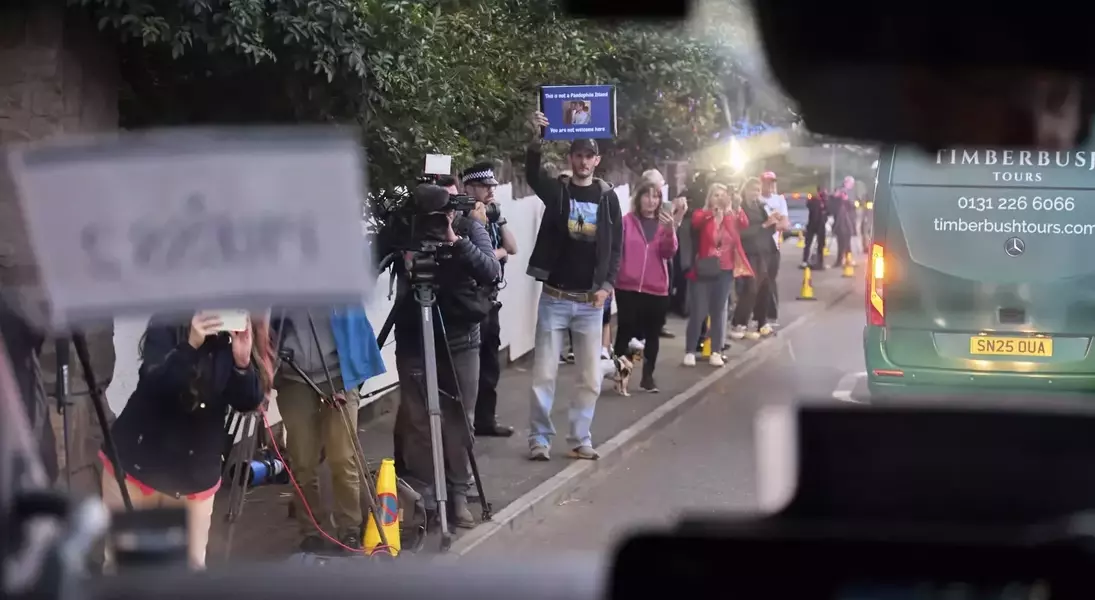
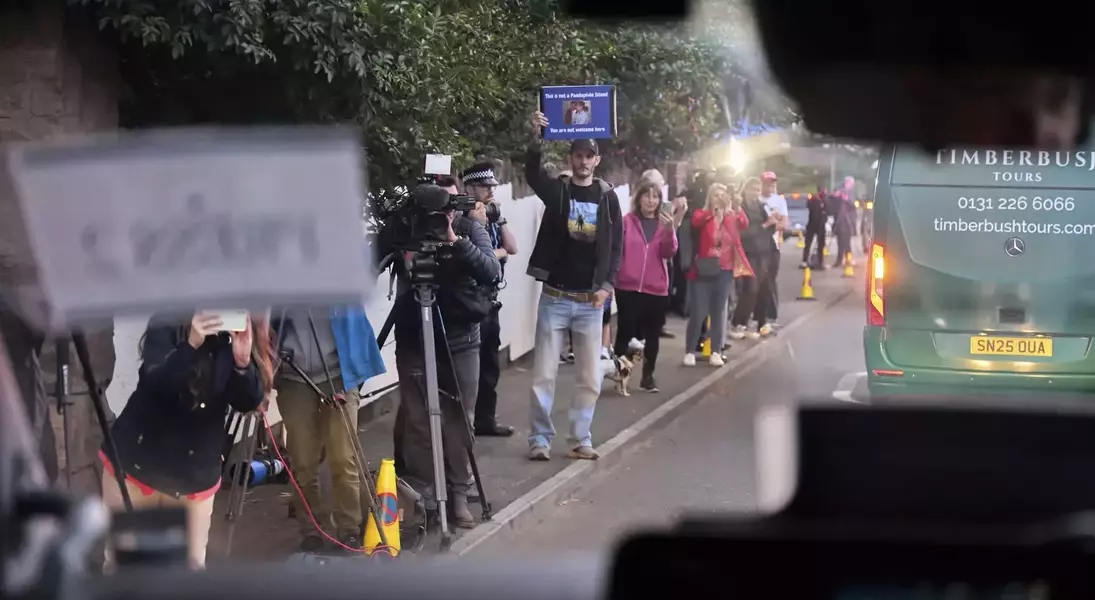
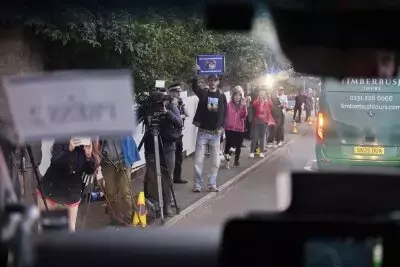
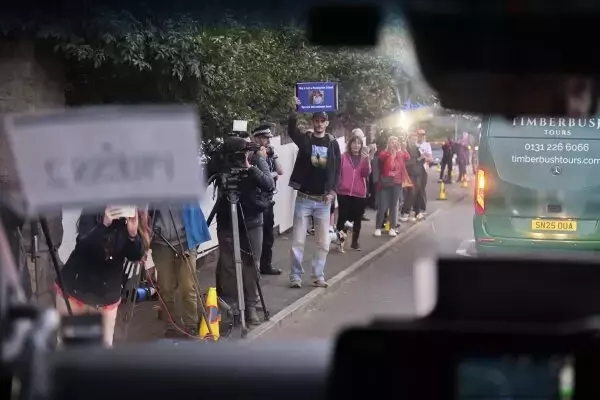
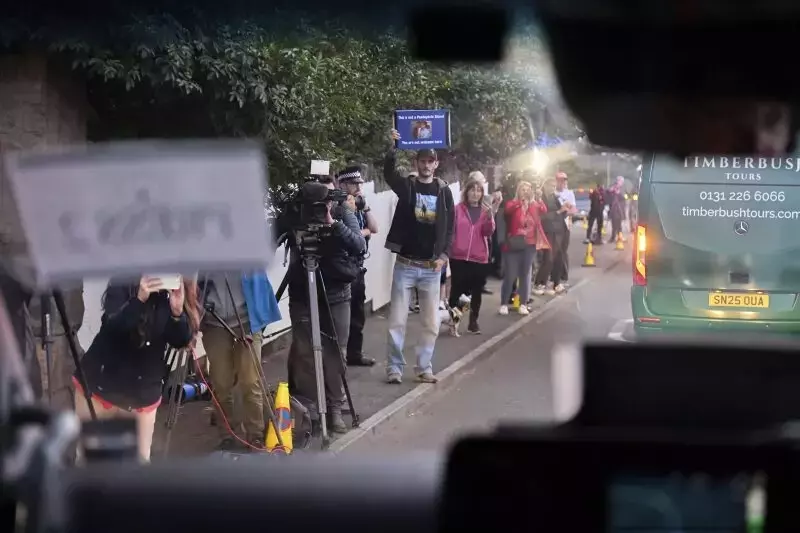
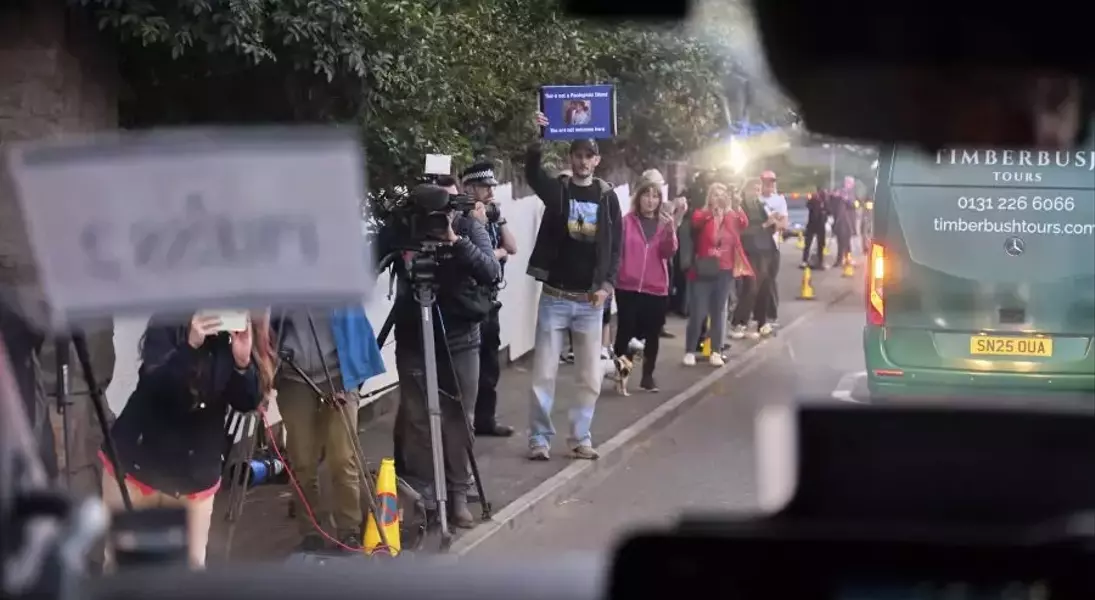
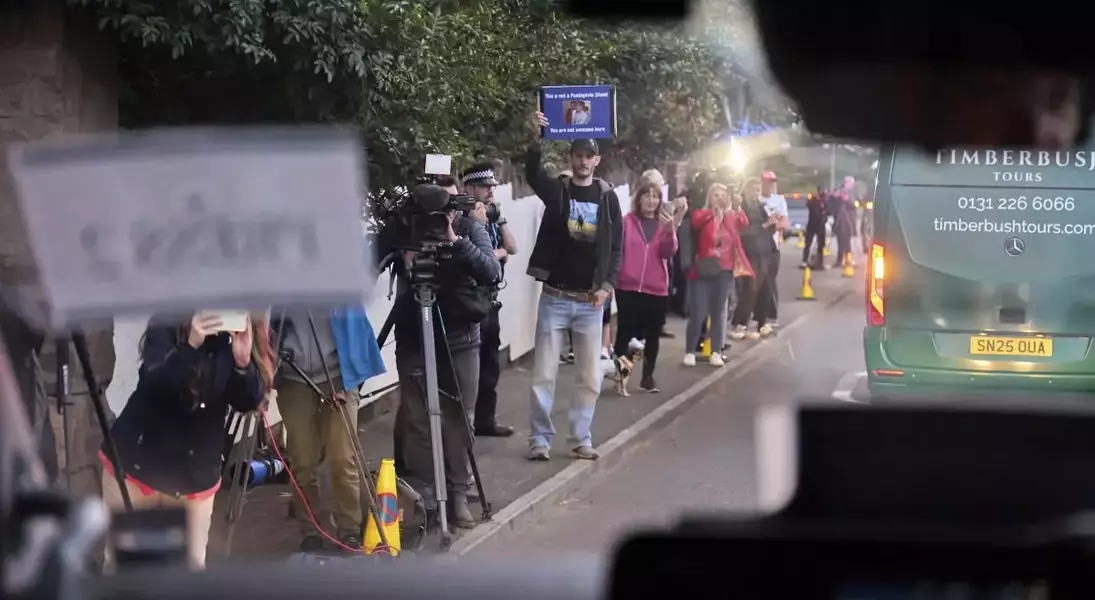
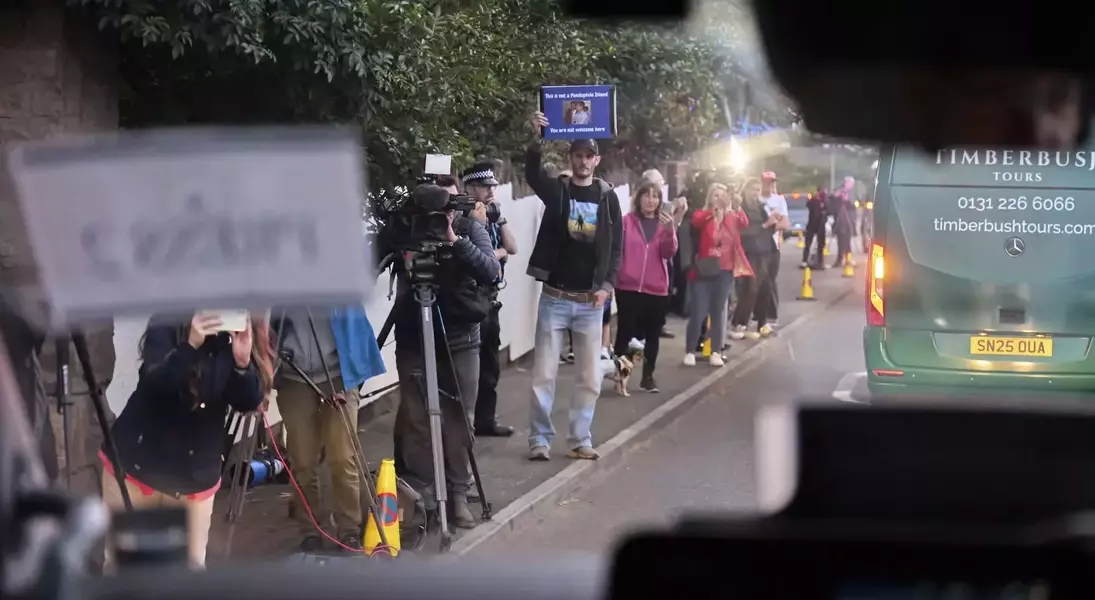
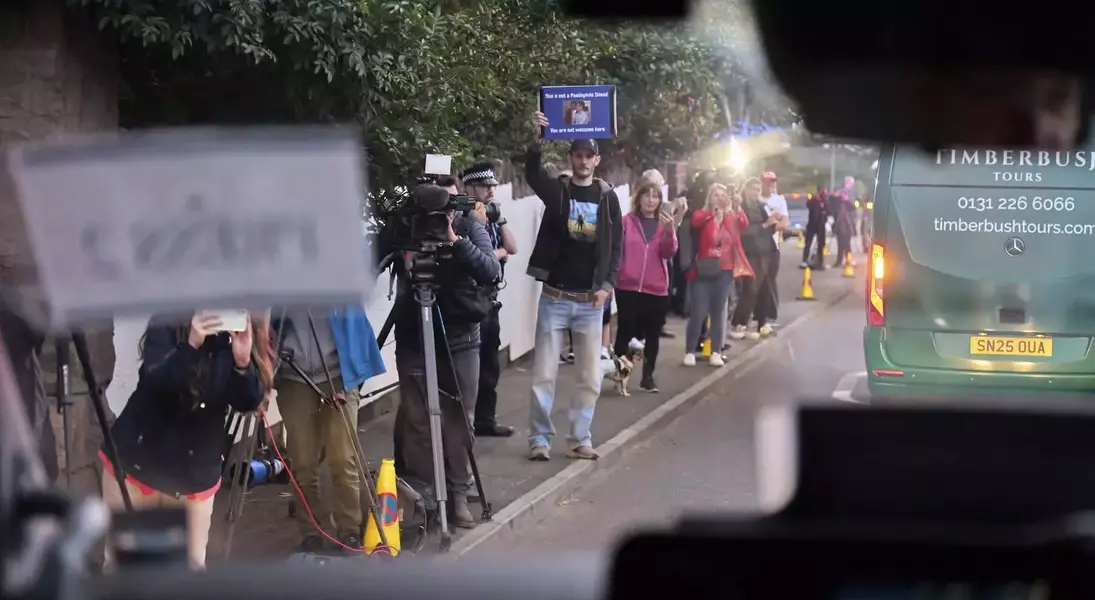


A recent visit by former U.S. President Donald Trump to Scotland for a golfing weekend ignited a wave of public demonstrations. These protests, which spanned various locations including his golf resorts and major cities, underscored a deep-seated opposition to his presence within the Scottish populace. The public outcry revolved around several contentious issues, ranging from his controversial past associations, notably with Jeffrey Epstein, to the perceived financial burden his security detail imposed on Scottish taxpayers. Despite his ancestral ties to Scotland through his late mother, the sentiment among many Scots was one of strong disapproval, leading to a dynamic display of civic dissent.
Details of the Scottish Demonstrations During Trump's Visit
In late July 2025, former President Trump embarked on a weekend golf retreat in Scotland, a land intrinsically linked to his heritage through his mother, Mary Anne MacLeod, who was born and raised on the serene Isle of Lewis. However, his arrival was not met with universal welcome. Instead, Scotland's vibrant cities and the picturesque vicinity of his golf resorts became the epicenters of spirited protests.
On a bright Saturday, hundreds gathered outside the U.S. consulate in the historic capital city of Edinburgh. Among the demonstrators, a protester humorously displayed a sign reading, "At least this bag of hot air serves a purpose," alongside Scottish bagpipes, while another banner boldly declared, "Scotland is already great"— a pointed retort to Trump's well-known slogan. Niamh Cunvin-Smith, a 25-year-old protester who journeyed from Inverness, articulated a common sentiment, questioning the rationale behind allowing a "convicted felon" to enter their country for leisure when public opinion was clearly against him.
A recent Ipsos poll revealed that a striking 71% of Scots hold an unfavorable view of Trump, significantly higher than the 57% across the broader United Kingdom. This strong disapproval persisted even as Trump engaged in golfing at his resort in Turnberry, approximately 100 miles from the Edinburgh consulate, which remained closed for the weekend. Adding to the familial dimension of the protests, Janet MacLeod-Trotter, a distant relative of the former president, held a sign proclaiming "MacLeods against Trump," expressing dismay at what she perceived as his "misuse of heritage" and the family name. She voiced the collective disappointment of many MacLeod clan members who felt their lineage was being tarnished by his actions, particularly his acquisition of golf courses that seemingly offered no benefit to the local community in Lewis, his mother's birthplace.
Furthermore, the shadow of Jeffrey Epstein loomed large over Trump's visit. Upon his arrival at Glasgow Airport on a Friday evening, questions regarding his name appearing in Epstein's files were immediately posed. While Trump dismissed these concerns as "conspiracy theories," some protesters in Edinburgh conspicuously displayed signs featuring images of Trump alongside Epstein. Similar imagery had recently surfaced at various bus stops in London, and a subversive sign even appeared outside one of Trump's Scottish golf resorts, mockingly declaring it "twinned with Epstein Island."
The financial implications of the visit also sparked considerable debate. A significant security operation was mounted for Trump's protection, involving officers from across the U.K. to support Scottish police. This extensive deployment was projected to cost Scottish taxpayers millions of dollars. Kerry Walsh, a concerned citizen from Glasgow, articulated her apprehension about the substantial expenditure, questioning the tangible benefits of his visit to Scotland. The Scottish police union also raised alarms about stretched resources, warning of potential delays in responding to other critical incidents due to the demands of Trump's security.
Amidst his golfing activities, Trump was also scheduled for high-level meetings. He was expected to confer with U.K. Prime Minister Keir Starmer, Scottish First Minister John Swinney, and European Commission President Ursula von der Leyen. While a limited U.K.-U.S. trade deal was already announced in May, Trump characterized his impending discussions as more of a "celebration than a workout," suggesting the deal was largely concluded. However, attention was also focused on potential trade agreements with the European Union, which Trump deemed a "50-50 chance," acknowledging existing sticking points. This trip, classified as a private presidential visit, precedes a state visit to the U.K. in September, where Trump is expected to meet King Charles III at Windsor Castle, marking an unprecedented second state visit for him to the British monarchy.
As a journalist observing these events, the sustained and vocal opposition to a former head of state, particularly in a nation with deep ancestral ties to him, offers a compelling study in contemporary public sentiment and political dynamics. The Scottish protests transcend mere political disagreement; they embody a broader cultural and moral stand. The constant invocation of sensitive issues like the Epstein scandal and the pointed critiques of his personal conduct, even in the context of a private visit, reveal a public deeply engaged and unwilling to overlook perceived injustices or improprieties. This situation highlights how global figures are increasingly held accountable, not just by their own electorates, but by international communities, especially in an era of heightened awareness and interconnectedness. It serves as a reminder that a nation's identity and values can powerfully push back against perceived affronts, irrespective of political or personal history.
